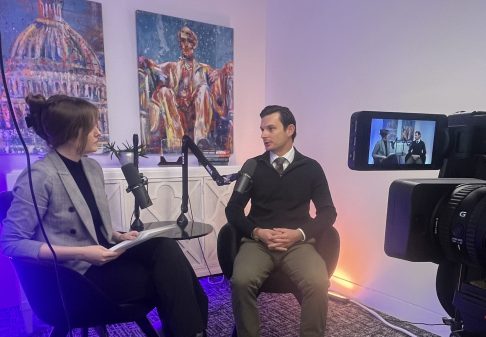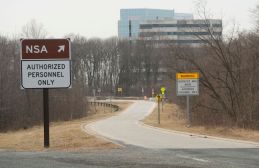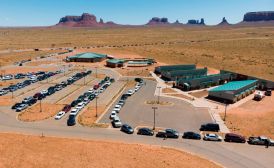EXCLUSIVE: NSA creating privacy internship program
The National Security Agency will begin accepting applications this fall for its first privacy and civil liberties internship program.
The application process will follow its summer internship program’s existing application schedule, which begins Sept. 1 and closes at the end of October. At least one student will be chosen for the 2016 summer program to work in the NSA’s newly created Civil Liberties and Privacy Office.
“Everybody has different perspectives, and I think those interns are an opportunity for the agency and my office in particular,” Rebecca Richards, the NSA’s director of civil liberties and privacy, told FedScoop in an exclusive interview at the agency’s Fort Meade headquarters in Maryland. “Exposing the agency to newly minted college grads as well as exposing those newly minted college grads to what the agency does can only bring benefits to the conversation.”
The conversation Richards refers to stems from the controversy surrounding the NSA’s foreign intelligence collection programs, particularly the bulk collection of telephone metadata. President Barack Obama ordered sweeping reforms to the programs in 2013, leading to the creation of Richards’ office a year ago this month.
The internship program adds to an expanding research effort led by Richards’ office, including a civil liberties and privacy assessment process that has been in beta testing for the past nine months. There are currently two NSA employees — one with a doctorate in mathematics and another who works as a technical compliance engineer when he’s not in law school — detailed to Richards’ office. They’re serving a six-to-nine month tour working on the technical aspects of improving privacy compliance.
“One of the programs we’re looking at right now is how can we take these strong technical capabilities in the agency to think about the question of how do you build more and better and different privacy and civil liberties protections into the technology,” Richards said. “We’ve put together a research agenda and one of those is actually looking at the math and the science behind how we think about data and its uses.”
Although the policies and procedures at NSA are subject to oversight under the Foreign Intelligence Surveillance Act and executive order 12333, Richards is using the agency’s technical expertise to look at the type of data collected by NSA and how it is used.
“When you look at other privacy laws, such as in health care, they look at your health information and what your insurance company or employer can do with it. But that’s not how folks have thought about it within the [NSA],” Richards said. “So what we’re building is this assessment process to look at both of those. And that’s how we’re going to think about it moving forward.”
One of the central thrusts of the research is to determine if certain data presents more or less risk to privacy and civil liberties, and if the same can be done in terms of how the data is being used.
“If you can do that risk analysis — and granted that’s going to be subjective — you can then assign mathematical equations so that you have a decision support tool that says ‘look at this one, it’s higher risk,'” Richards said. “I think this is a really important way to look at it as we think about big data outside the agency.”
Although current privacy research at NSA involves mathematical and technical approaches to baking privacy into the systems used at the agency, Richards said there is no typical background that would provide one internship candidate an advantage over others.
“One of the interesting things as we think about technology and privacy is we really need to blend both the art and science of thinking about privacy,” she said. “There’s a real technical component — ‘do you know what your phone is doing, do you know what information is going out?’ But you need to be able to communicate that in a way that you or my mother or my father-in-law really understand and then trust. I’m using this as an opportunity to bring those communities together and really do that outreach.”
She’ll have a large pool of candidates to choose from. Each year, NSA receives nearly 11,000 applications for 300 summer internship slots, Lisa Schell, NSA’s chief of student programs, told FedScoop.
And the students aren’t doing busy work, Schell said. “They’re doing mission-related work. They’re getting on-the-job training, working side by side with more senior employees, getting real-life experience and working on real-world problems,” she said.
At the end of every summer, graduating seniors can post their resumes on an internal NSA website so that hiring managers can review them before they graduate. Of the interns interested in becoming permanent employees, “we probably convert easily 90 to 95 percent of those students,” Schell said.
NSA managers “believe they get good hires from these students,” Schell said. “I call it a ‘try before you buy.'”






